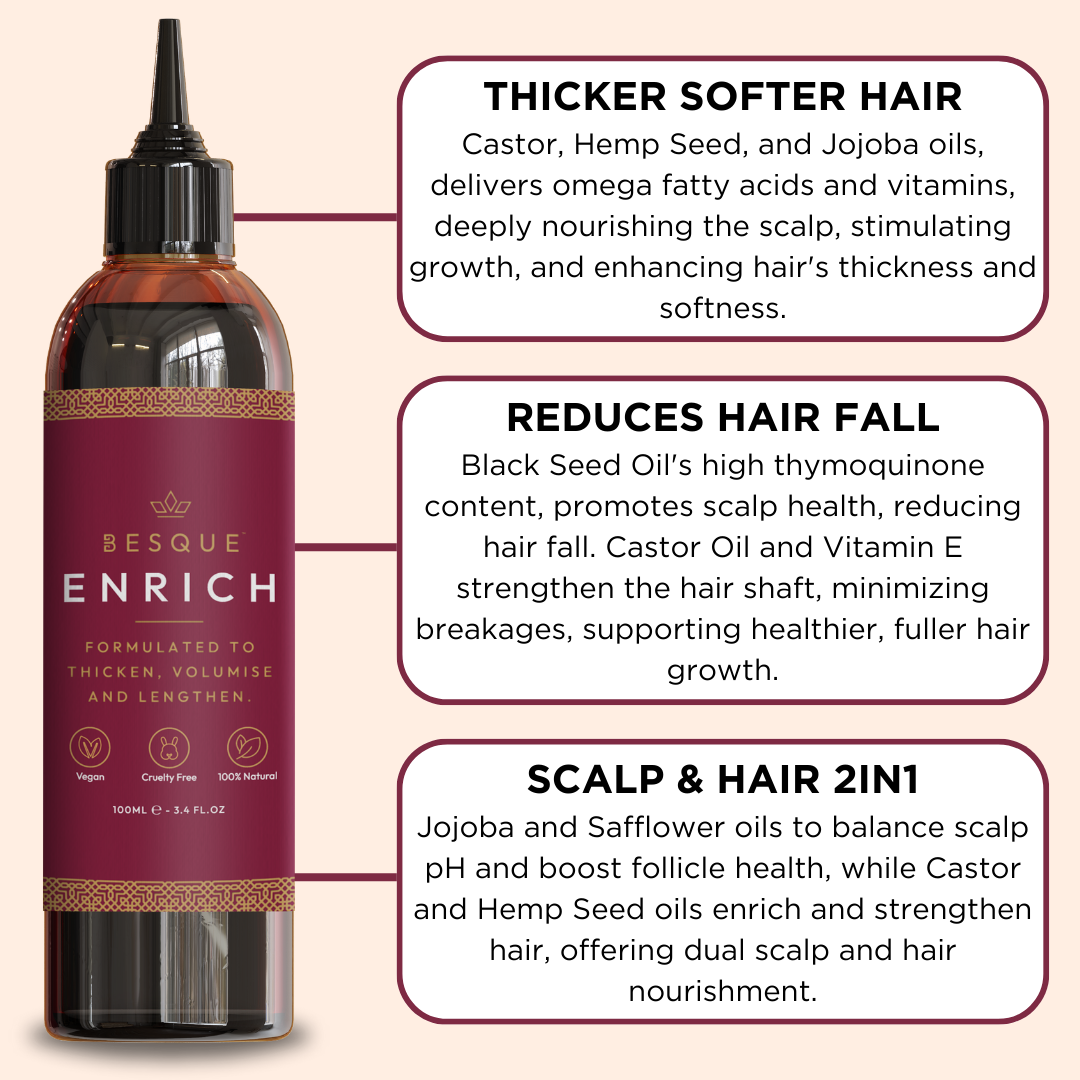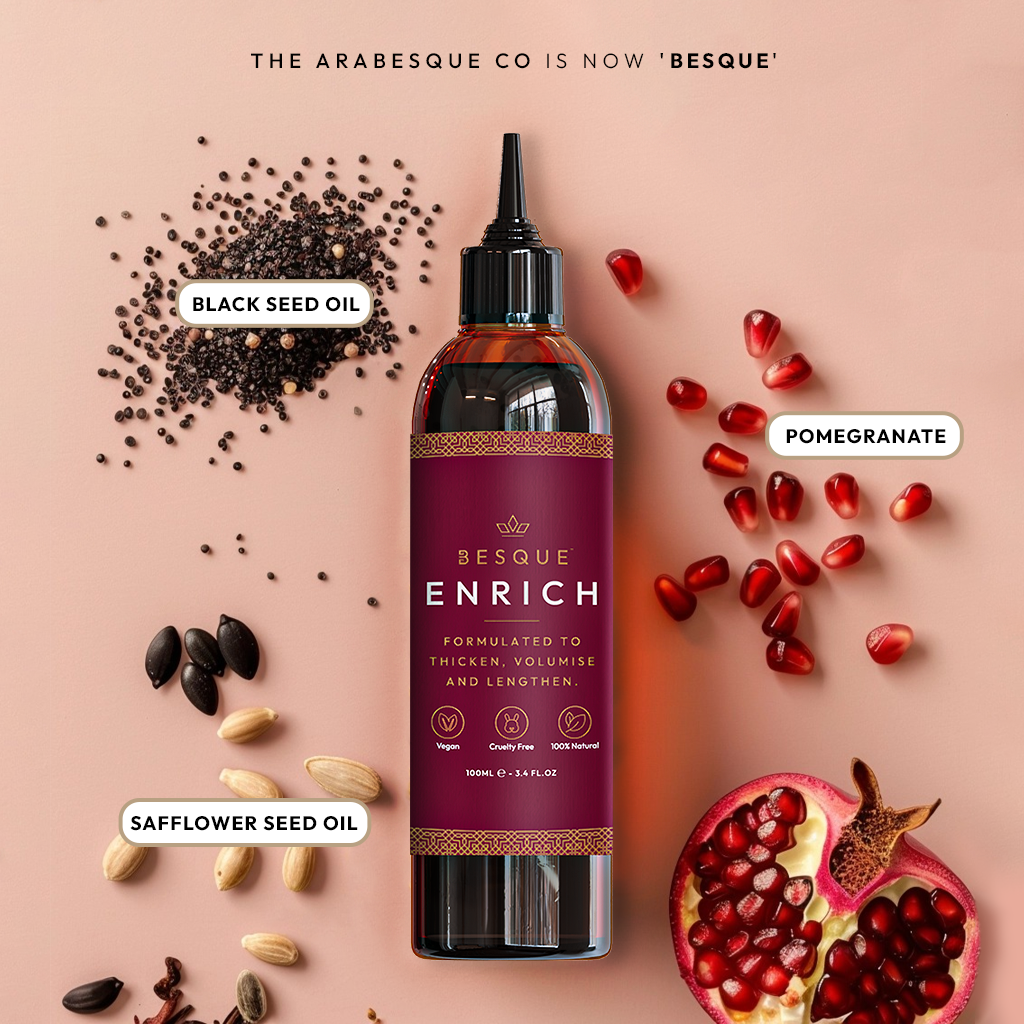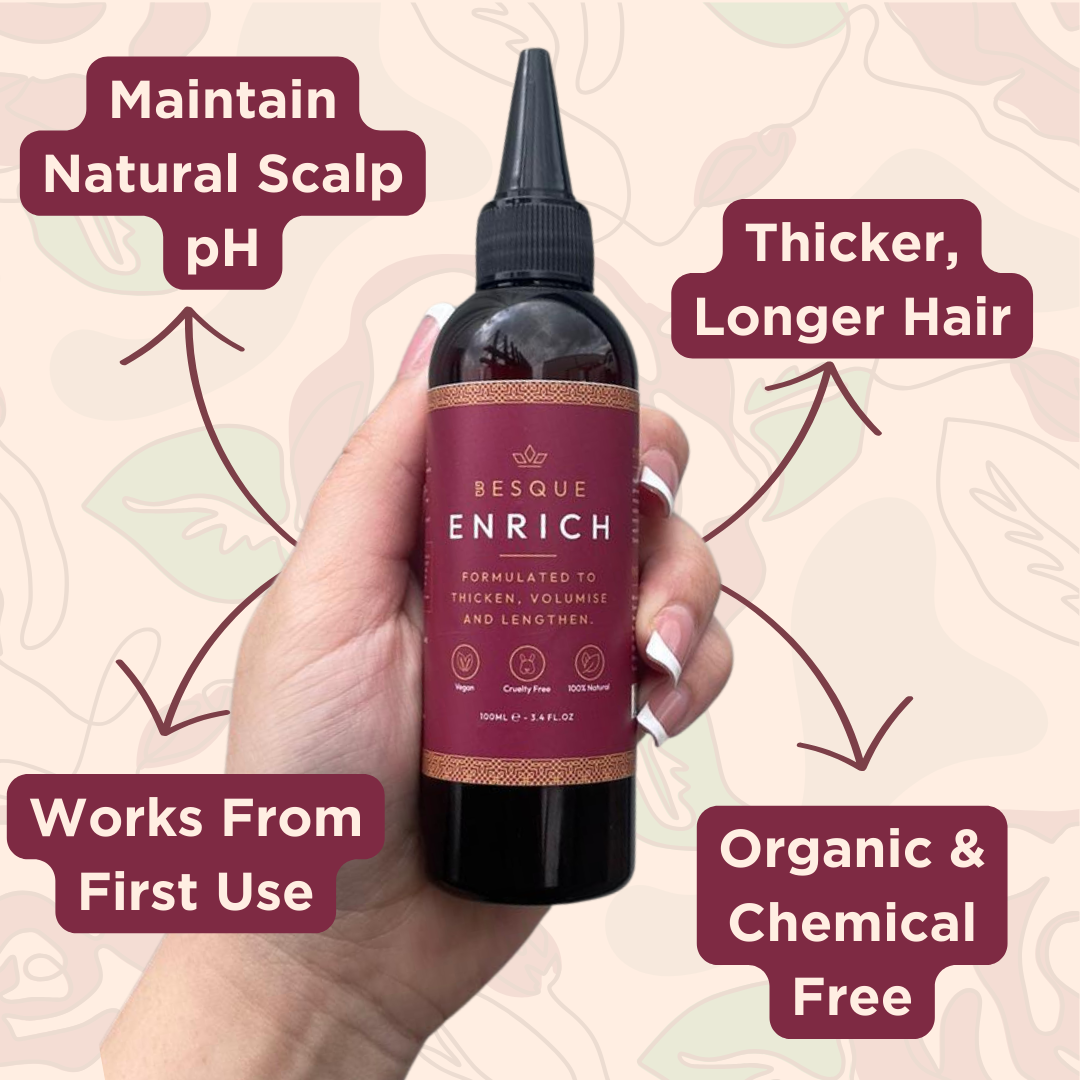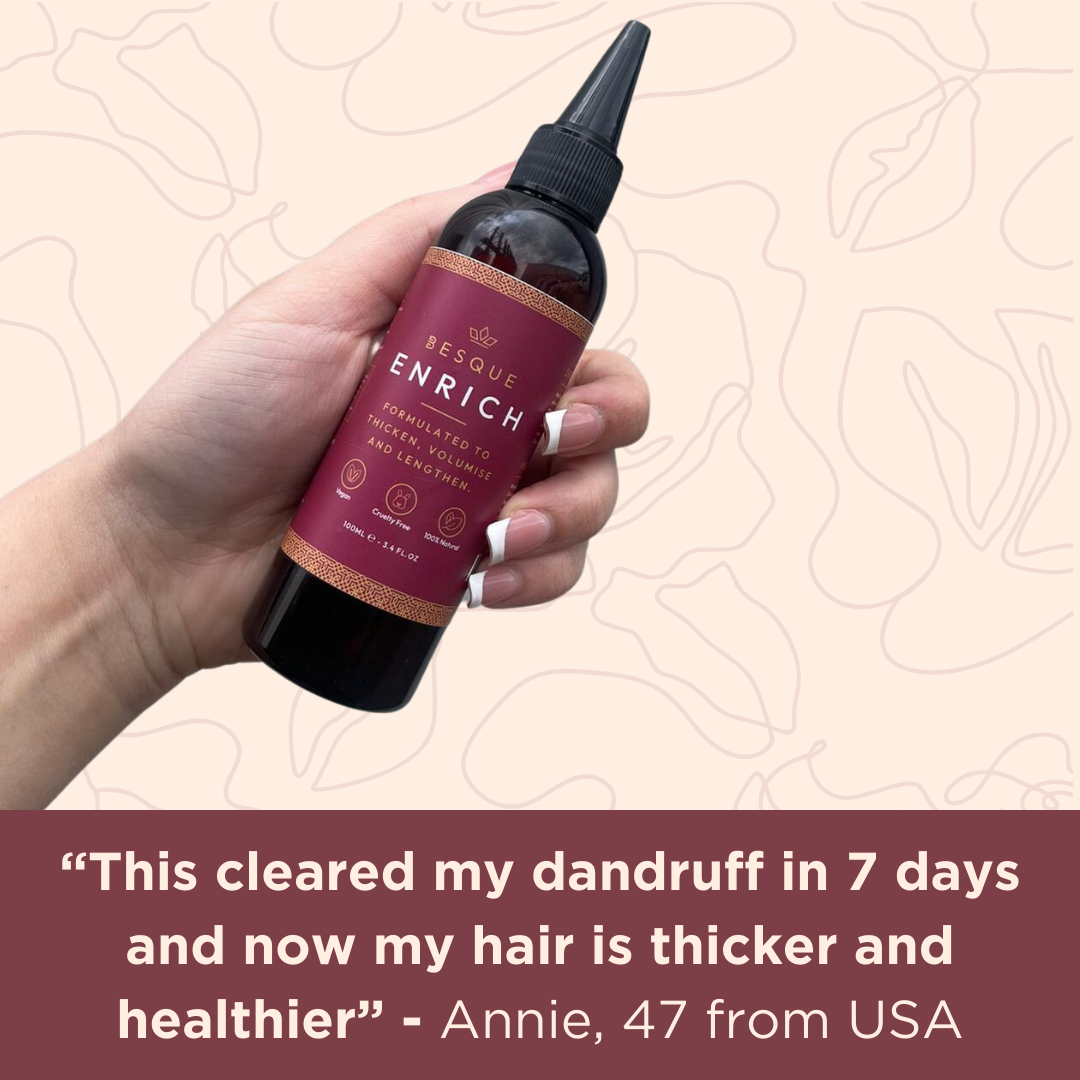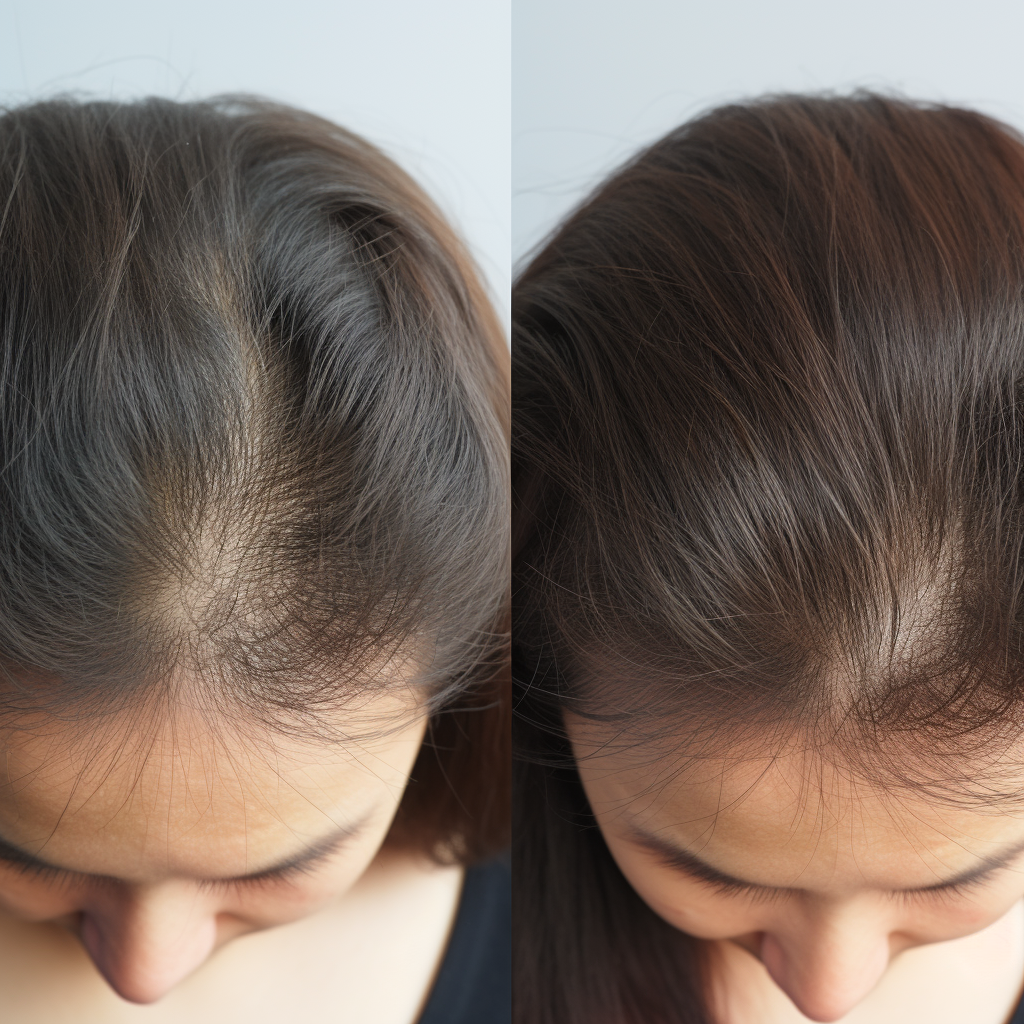The Science Behind Using Hair Oil: Exploring the Benefits of Plant Oils

Hair oiling has been a popular practice for centuries, with the aim of nourishing and enhancing the health of our hair. In recent years, scientific studies have shed light on the benefits of different oils for hair care. This article delves into the science behind hair oiling, focusing on the effects of castor oil, safflower oil, hemp seed oil, black cumin seed oil, jojoba oil, and vitamin E oil. We will reference various scientific studies to support our discussion. Our Enrich Hair Oil combines the benefits of all of the following oils in one secret formula passed down through 4 generations.
- Castor Oil:
According to a study published in the Journal of Cosmetic Science (1), castor oil has been found to possess antimicrobial and anti-inflammatory properties. It contains ricinoleic acid, which helps improve blood circulation to the scalp, promoting hair growth. Additionally, castor oil's high viscosity forms a protective coating on the hair shaft, reducing moisture loss and enhancing hair strength.
- Safflower Oil:
Research published in the Journal of Clinical and Aesthetic Dermatology (2) suggests that safflower oil is rich in omega-6 fatty acids, which play a crucial role in maintaining hair health. These fatty acids help nourish the scalp, reduce dryness, and improve hair texture. Safflower oil also contains vitamin E, which acts as an antioxidant, protecting hair from damage caused by free radicals.
- Hemp Seed Oil:
A study published in the Journal of Agricultural and Food Chemistry (3) highlights the potential benefits of hemp seed oil for hair care. Hemp seed oil is rich in essential fatty acids, including omega-3 and omega-6, which help moisturize the scalp and strengthen hair follicles. Its anti-inflammatory properties may also alleviate scalp conditions such as dandruff and itching.
- Black Cumin Seed Oil:
Black cumin seed oil has gained attention for its potential hair benefits. A study published in the Journal of Dermatology & Dermatologic Surgery (4) suggests that black cumin seed oil contains thymoquinone, which exhibits antioxidant and anti-inflammatory properties. These properties may help reduce hair loss, promote hair growth, and improve overall hair health.
- Jojoba Oil:
Jojoba oil closely resembles the natural sebum produced by our scalp. A study published in the International Journal of Molecular Sciences (5) highlights its moisturizing and conditioning properties. Jojoba oil helps regulate sebum production, preventing excessive oiliness or dryness. It also forms a protective layer on the hair, reducing moisture loss and improving hair elasticity.
- Vitamin E Oil:
Vitamin E oil is known for its antioxidant properties, which can help protect hair from oxidative stress and damage caused by environmental factors. A study published in the Journal of Cosmetic Dermatology (6) suggests that vitamin E oil may promote hair growth by improving blood circulation to the scalp and reducing inflammation.
Conclusion:
Scientific studies have provided valuable insights into the benefits of various oils for hair care. Castor oil, safflower oil, hemp seed oil, black cumin seed oil, jojoba oil, and vitamin E oil have shown promising effects on hair health, including promoting hair growth, reducing inflammation, moisturizing the scalp, and protecting hair from damage. Incorporating these oils into your hair care routine may help you achieve healthier, more lustrous locks. Our Enrich Hair Oil contains all 6 of the above mentioned oils and more. Today scientific studies have supported an ancient tradition rooted in organic and natural living. Give back to nature and nature will give to you from her immense trasures.
References:



